Mon - Fri: 8am - 5pm, Sat - Sun: Closed

6-36 Month Warranties
We Ship Local.
Hablamos Español.
Connect with
Understanding Engine Cooling Systems: What You Need to Know
Engine Cooling System
How Engine Cooling Systems Work
The engine cooling system plays a crucial role in maintaining optimal engine temperatures. It consists of key components such as the radiator, thermostat, water pump, and coolant. The coolant absorbs heat from the engine, which is then dissipated through the radiator. The thermostat controls the coolant flow to ensure the engine warms up quickly and maintains a steady temperature for efficient operation.
The water pump circulates the coolant throughout the engine and radiator, preventing overheating. If any of these components malfunction, the engine can overheat, potentially causing severe damage. Regular checks and maintenance of the cooling system are essential to ensure it operates efficiently, protecting the engine from heat-related damage and extending its lifespan.
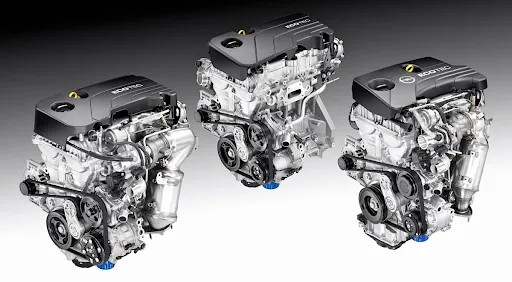
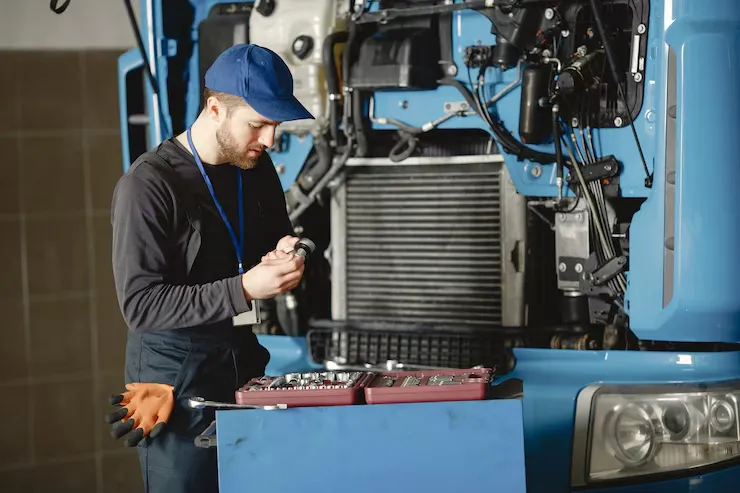

Maintaining the cooling system requires regular inspections to check for hose leaks or cracks, ensuring the radiator is free from obstructions, and monitoring coolant levels. It's essential to use the correct type of coolant specified for your vehicle and replace it at the recommended intervals to prevent corrosion and buildup. Keeping the system clean and properly maintained ensures efficient heat dissipation, preventing overheating and engine damage. Regular cooling system maintenance is key to prolonging engine life and maintaining optimal performance.
Common Cooling System Issues and Prevention
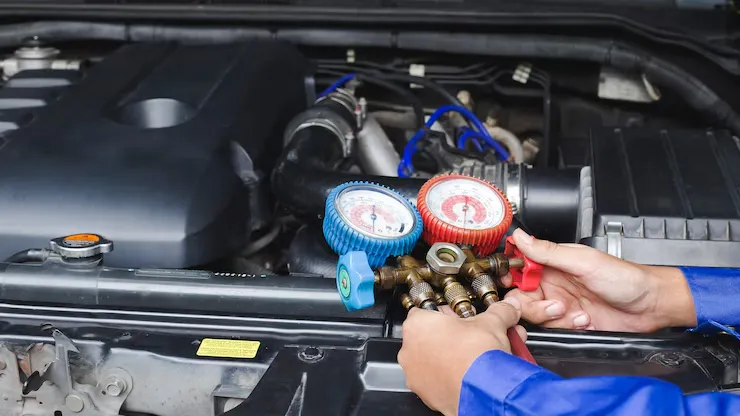
Maintaining the cooling system is essential for ensuring your engine operates at the right temperature. Regular inspections are necessary to check for hose leaks or cracks, as well as to ensure the radiator is free from any obstructions. Monitoring the coolant levels and topping them up as needed is also vital. Using the correct type of coolant, as specified in your vehicle’s manual, and replacing it at the recommended intervals helps prevent corrosion and buildup within the system.
Proper cooling system maintenance ensures efficient heat dissipation in engines, which helps prevent overheating and reduces the risk of engine damage. Keeping the system clean and functioning properly ensures the engine stays within optimal temperature ranges. Regular checks and maintenance of the cooling system not only help in preventing costly repairs but also extend the lifespan of the engine, ensuring it continues to perform at its best for years to come.
Regular maintenance is crucial for preventing breakdowns and extending your engine's lifespan. By addressing minor issues promptly, you can avoid more costly repairs down the road. Routine checks, such as oil changes, air filter replacements, and spark plug inspections, help keep the engine running smoothly and efficiently. Timely attention to these tasks ensures consistent vehicle performance and reduces the likelihood of unexpected failures. Maintaining your engine regularly not only saves money in the long run but also ensures a safer and more reliable driving experience.
Signs of Cooling System Failure
Recognizing the early signs of cooling system failure is crucial for preventing severe engine damage. One of the most common indicators is overheating. If the temperature gauge rises above normal levels, it can be a sign that the engine is not effectively managing its temperature. Overheating can lead to significant engine damage if left unaddressed, such as warped components or a cracked engine block, so it’s essential to pay attention to the gauge and act quickly if the needle rises beyond the safe zone.
Another clear sign of cooling system trouble is coolant leaks. If you notice puddles under your vehicle or find that the coolant levels are consistently low, this could indicate a leak somewhere in the system. Coolant leaks not only reduce the effectiveness of the cooling system but can also lead to engine overheating and eventual damage if the coolant supply runs out. Regularly checking coolant levels and inspecting for leaks can help catch these issues before they become more serious.
Steam coming from under the hood is another unmistakable sign that something is wrong with the cooling system. If you see steam or smoke, it’s a sign that the engine is getting too hot and coolant may be boiling over. This can result in severe engine damage if the issue is not addressed immediately. If you encounter steam, pull over safely and let the engine cool down before seeking professional help.
Unusual noises, such as grinding or whining sounds from the water pump, should not be ignored. These noises can indicate that the water pump, responsible for circulating coolant throughout the engine, is failing. A malfunctioning water pump can quickly cause the engine to overheat and suffer extensive damage. If any of these symptoms occur, it’s vital to inspect the cooling system immediately. Ignoring these warning signs could lead to costly repairs, engine overheating, warped components, or even complete engine failure. Regular inspections and timely repairs are key to avoiding such issues.
Maintaining Optimal Engine Temperature
Maintaining the engine at its optimal temperature is crucial for ensuring both efficiency and longevity. Regularly checking coolant levels and topping up with the correct mixture of antifreeze and water helps maintain effective heat transfer within the engine. Ensuring the right coolant ratio prevents freezing in cold weather and overheating in hot conditions. It's also important to inspect the radiator and hoses for any signs of wear, cracks, or leaks that could compromise the cooling system's performance. Small issues with these components can lead to bigger problems if not addressed promptly.
At Houstan Engines, Equally important is ensuring the radiator fan is operating correctly, especially during idle or slow traffic conditions. The fan helps cool the engine when the vehicle is not moving fast enough to naturally dissipate heat. If the fan malfunctions, it can cause the engine to overheat, even if the radiator and hoses are in good condition. A faulty fan might go unnoticed until it’s too late, leading to severe engine damage. Regular maintenance and prompt repairs can prevent such issues, ensuring the engine stays at an optimal temperature and operates efficiently.
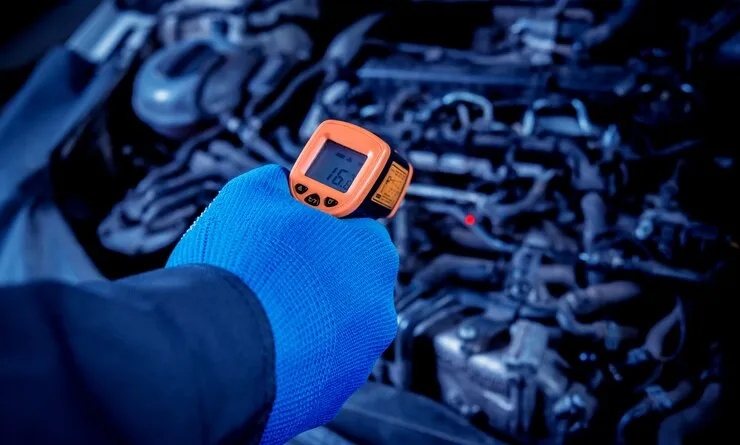
Essential Cooling System Maintenance Tips
Regular inspections are essential for maintaining the integrity of the cooling system. Over time, hoses and clamps can develop cracks or become loose, leading to leaks. The radiator itself may also show signs of damage or corrosion. It's crucial to check all these components regularly to catch any issues early. A small leak, if left undetected, can cause coolant loss, leading to engine overheating and potential damage. Keeping an eye on these parts ensures the cooling system is operating effectively.
Coolant replacement is another important part of cooling system maintenance. Coolant degrades over time, losing its ability to regulate the engine’s temperature effectively. Flushing and replacing the coolant according to the manufacturer’s recommendations ensures the system stays in optimal condition. Using the correct coolant is vital, as it helps prevent corrosion, buildup, and freezing. Regular coolant replacement is an easy way to extend the life of your engine and prevent costly repairs.
Thermostat checks are also an important aspect of engine cooling. The thermostat regulates coolant flow and ensures that the engine warms up quickly and maintains a consistent temperature. A malfunctioning thermostat can cause the engine to overheat or run too cold, leading to poor performance and reduced fuel efficiency. Contact us, Periodically testing the thermostat to ensure it opens and closes at the correct temperatures is vital to keep the engine operating smoothly.
Radiator cleaning is another often-overlooked maintenance task. Over time, debris such as dirt, leaves, and bugs can clog the radiator, obstructing airflow. This reduces its ability to dissipate heat and can cause the engine to overheat.
Get our latest news and promos
QUALITY ASSURED


SATISFACTION GUARANTEED

UNPARALLELED SUPPORT
Houston Engines
Proud Member

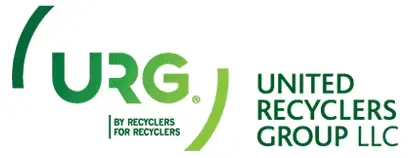

Social Media
Payments Accepted
Ship Via











